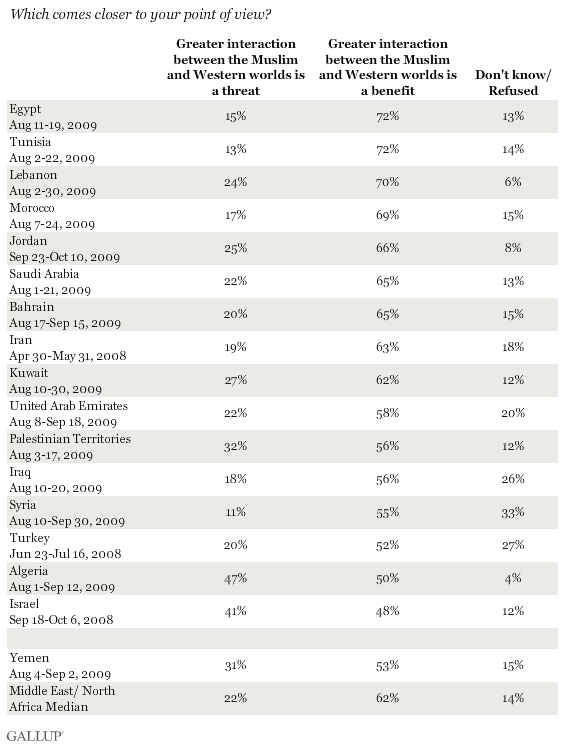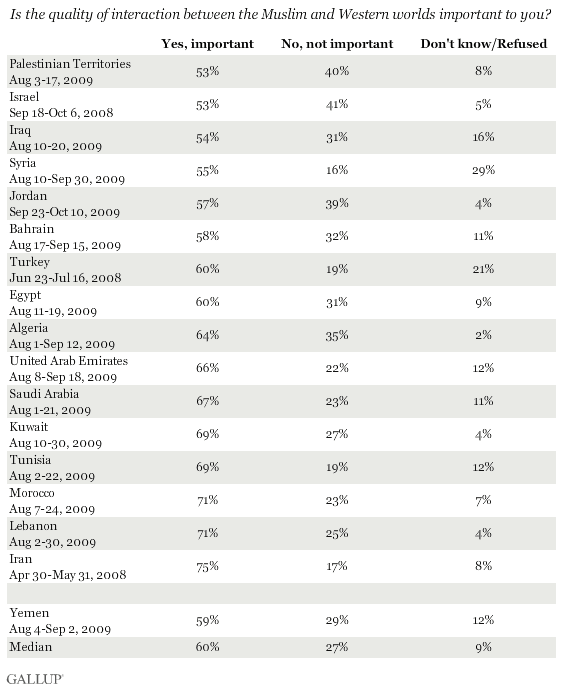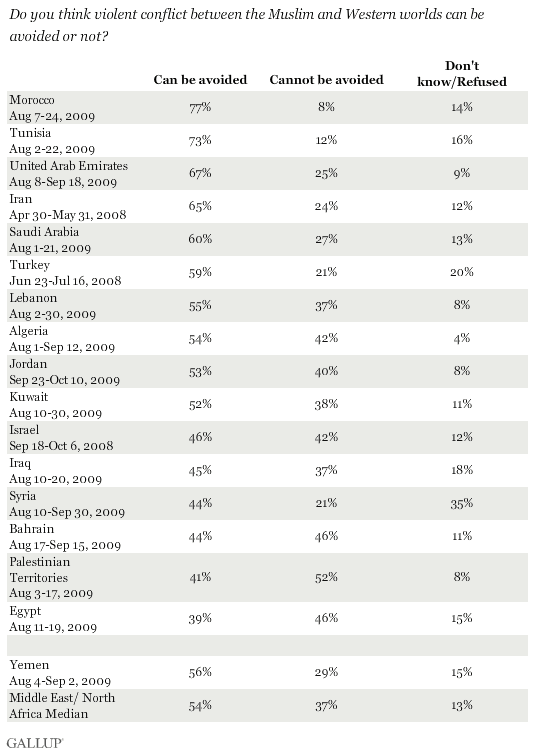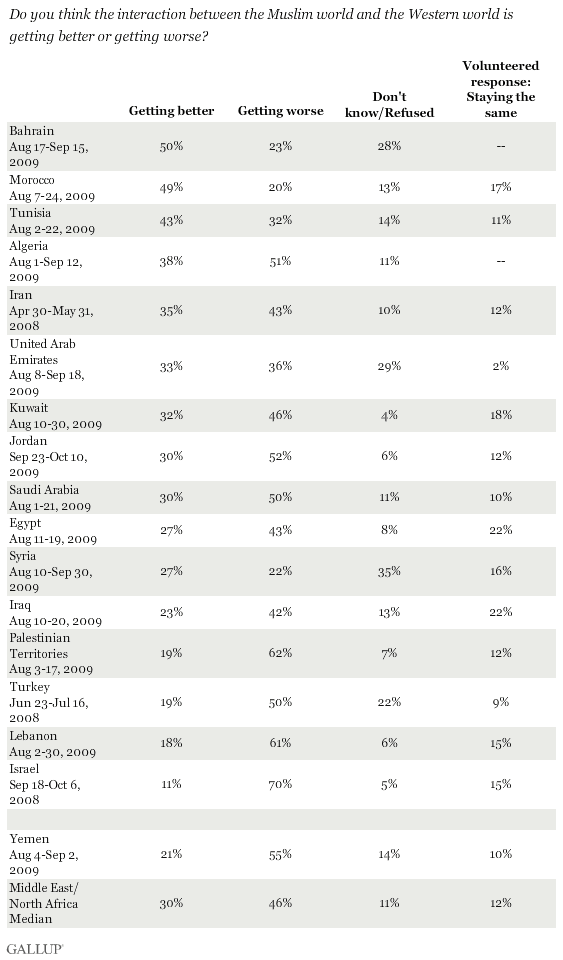WASHINGTON, D.C. -- With the increased attention Yemen is receiving from the U.S. government and the news media, questions about conditions in the country and the sentiment of Yemeni citizens -- their views of the West in particular -- have come to the forefront. ���۴�ýdata reveal the average Yemeni sees greater interaction between the Muslim world and the West as a benefit and views the quality of this interaction as personally important.

A majority of Yemenis (53%) interviewed in early August through early September 2009 told ���۴�ýthey believe greater interaction between the Muslim world and the West is a benefit, which may provide a foundation for Western nations and Yemen to build on in the days ahead. This percentage is lower than the median (62%) for the Middle East/North Africa region, but statistically, it is not any lower or higher than sentiment in a host of other majority Muslim countries, including Iraq (56%), the Palestinian Territories (56%), Syria (55%), Turkey (52%), and Algeria (50%).
Further, nearly 6 in 10 Yemenis (59%) also say the quality of the interaction between the Muslim world and the West is important to them. This number is about average for the Middle East/North Africa region, where the median percentage who believes the quality of the interaction is important is 60%. Yemenis, interestingly, are slightly more likely to share this point of view than Iraqis (54%) or Palestinians (53%).

A majority of Yemenis (56%) believe conflict between the Muslim world and the West can be avoided, which statistically similar to the median of 54% for the region and the 52% of Americans surveyed in 2008 who shared the same view. Yemenis, however, are significantly more likely than those surveyed in Iraq, Bahrain, the Palestinian Territories, Syria, and Egypt to believe this.

At the same time, like most residents in the region, Yemenis are more likely to say the Muslim world and the West are not getting along well (71%) than to say they are getting along (16%), and to say the quality of these interactions is getting worse (55%) rather to say it is getting better (21%). Yemenis are slightly more likely than the average for the region to see the situation negatively, but they are not the most likely to feel this way. Interestingly, Americans asked this question last year were more likely than Yemenis to see interactions as getting worse; 66% of U.S. adults characterized relations this way.

Bottom Line
Relations between Western countries and Yemen remain sensitive given the current security situation. ���۴�ýdata suggest that the next steps in relations will likely be crucial ones. Like other residents of the region, the average Yemeni's attitudes about Muslim-West relations indicate there is potential for improvement, with residents actually more confident than those in other nations that violent conflict can be avoided.
Survey Methods
Results are based on face-to-face with approximately 1,000 adults, aged 15 and older, in Yemen, Saudi Arabia, Algeria, Egypt, Bahrain, Iraq, Iran, Turkey, Lebanon, Jordan, Israel, the Palestinian Territories, Kuwait, and Tunisia. With the exception of Turkey, Iran, and Israel, where these questions were asked in 2008, all surveys were conducted between August and October 2009. For results based on the total samples of national adults, one can say with 95% confidence that the maximum margin of sampling error ranges from ±3.4 percentage points in Bahrain to ±3.7 in the Palestinian Territories. For results based on the total sample of Yemeni adults, one can say with 95% confidence that the maximum margin of sampling error is ±3.7 percentage points. The margin of error reflects the influence of data weighting. In addition to sampling error, question wording and practical difficulties in conducting surveys can introduce error or bias into the findings of public opinion polls.
